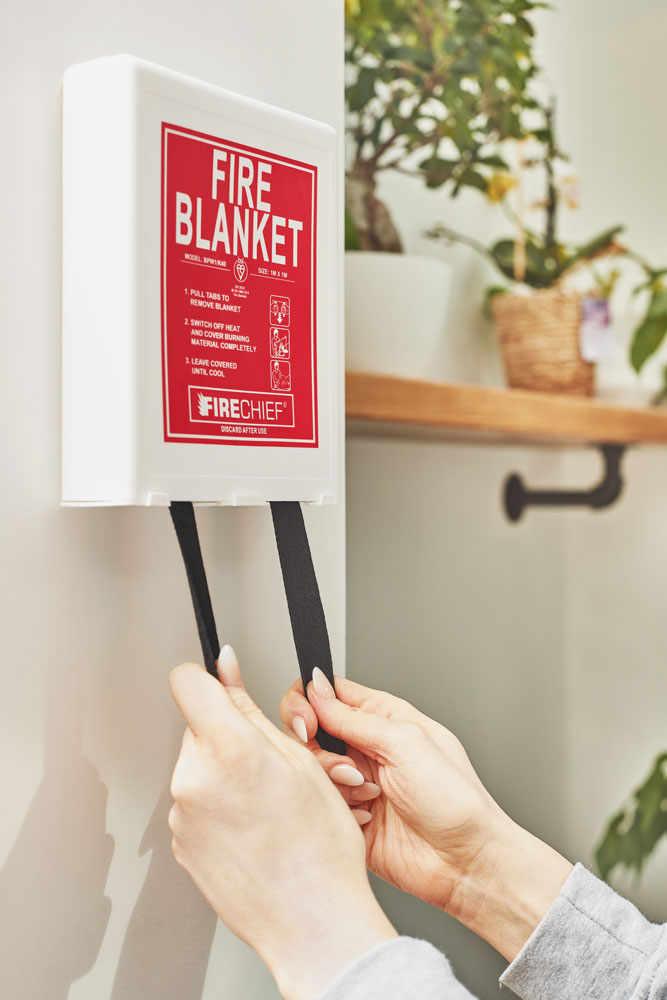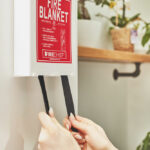
London Fire Brigade (LFB) issued an ‘urgent’ message for millions working from home during the pandemic warning of the ‘potential for more fires’ in the new situation.
As a result of the ‘increased numbers of people at home during the day’, LFB has warned of the ‘potential for more fires as people adapt their daily routines and others are in isolation’, calling on people to ‘think, take action and avoid becoming a further casualty for the NHS’. It pointed out that firefighters are ‘usually called to a larger number of domestic fires’ between 6pm and 8pm, and ‘there has traditionally been an increase in cooking fires during the weekend’.
This is because ‘people are at home for longer periods of time’, but in 2020 so far it is ‘seeing an increase in weekday fires and fires earlier in the day’, meaning that it wants to warn that ‘common causes of fires in the home such as cooking, smoking, electrical items and heating sources could become even more prevalent as people are spending more time indoors than usual’.
For LFB, cooking fires ‘are a major concern’ because those staying at home ‘are expected to cook more during the day’, and due to schools being shut and children being home, ‘parents could get distracted’, while an increase in smoking related fires – ‘the most common cause of fire deaths’ – is ‘thought to be a possibility as smokers may start smoking inside more as people are continually advised not to go out unnecessarily’.
It urged the public to ‘please speak’ to vulnerable friends and family members who smoke who ‘it may not be possible to visit […] at the moment’, and ‘remind them about the dangers of smoking’; while people who ‘don’t usually work from home’ are setting up temporary offices, meaning ‘there is also a risk of an increase in electrical fires’. Hazards include overloading plug sockets, using ‘counterfeit or incorrect’ device chargers and ‘daisy-chaining’ multiple extension leads together.
Finally, it noted that another concern around people ‘spending more time at home’ is that this could lead to ‘higher heating bills’ that may in turn ‘tempt people to heat their home unsafely’. Dan Daly, LFB assistant commissioner for fire safety, commented: ‘It’s absolutely vital that in these uncertain and unprecedented times people don’t forget about basic fire safety in the home.
There are multiple fire risks in the home. Kitchen fires from unattended cooking; overheating electronic and electrical appliances; open fires and chimneys; faulty electrical wiring or overloaded electrical systems; candles and other open flames; smoking, matches and lighters, flammable liquids and aerosols; and barbeques, to name a few.
Here at Firechief, we want you to feel safe. Our mission is to work hard every day to protect lives and property from fire by providing a range of fire safety products that can be trusted to perform when the heat is on.
Firechief products carry a range of accreditations such as the BSI Kitemark, LPCB approval, MED certification, CE mark and Apragaz QA.
The Firechief range includes high performance fire extinguishers, fire blankets, first aid kits, lithium-ion fire extinguishers and Firechief CAVIUS Alarms for your home.
The Firechief range of products set the standard for those who are seeking competitively priced, superior quality, UK-approved fire safety products.
Look out for the Firechief brand for products you can trust to help keep you safe.
Here is a list of recommended fire safety products for your home.
For more information, call us on +44 (0)330 999 0019 or email sales@firechiefglobal.com.

